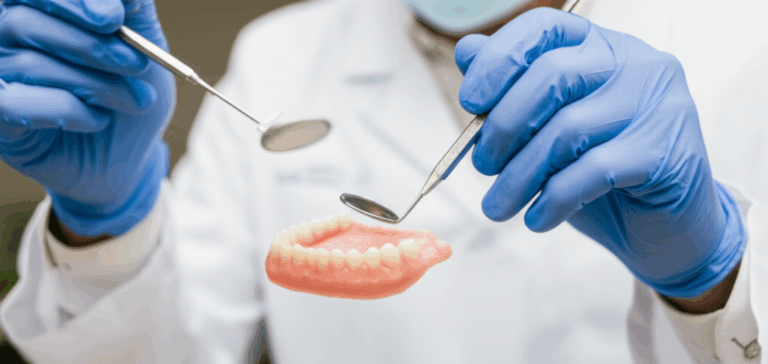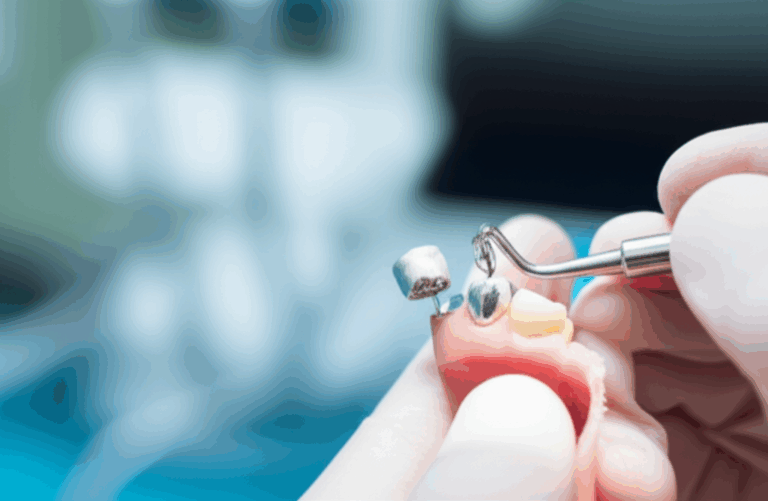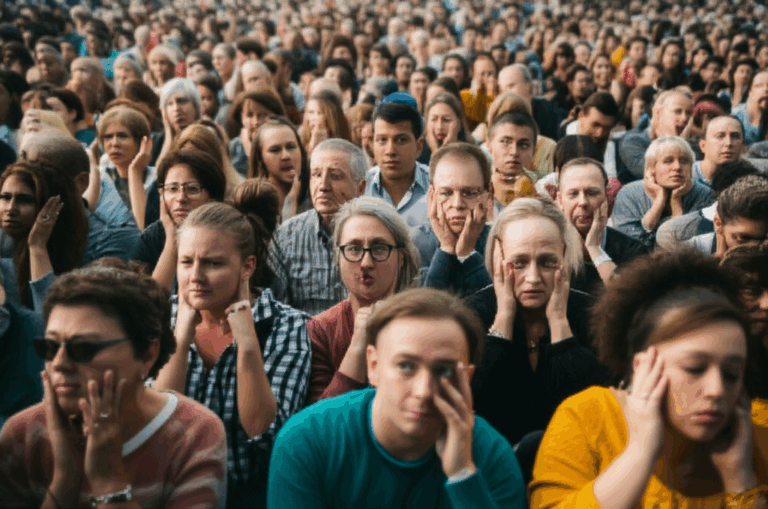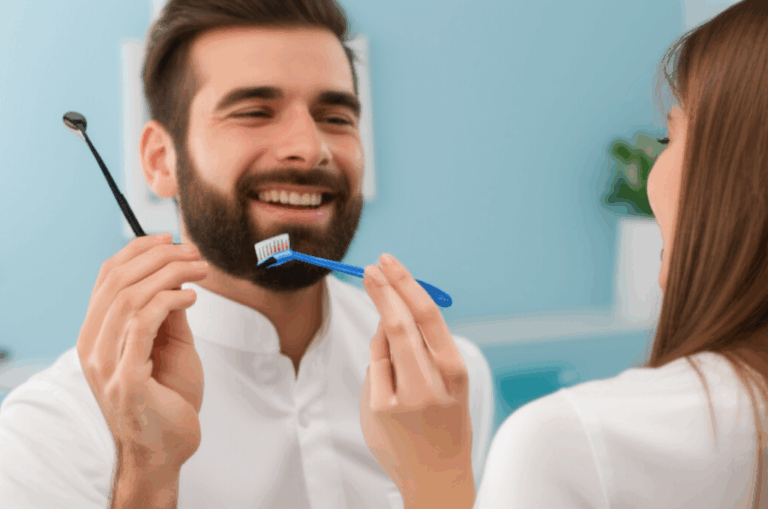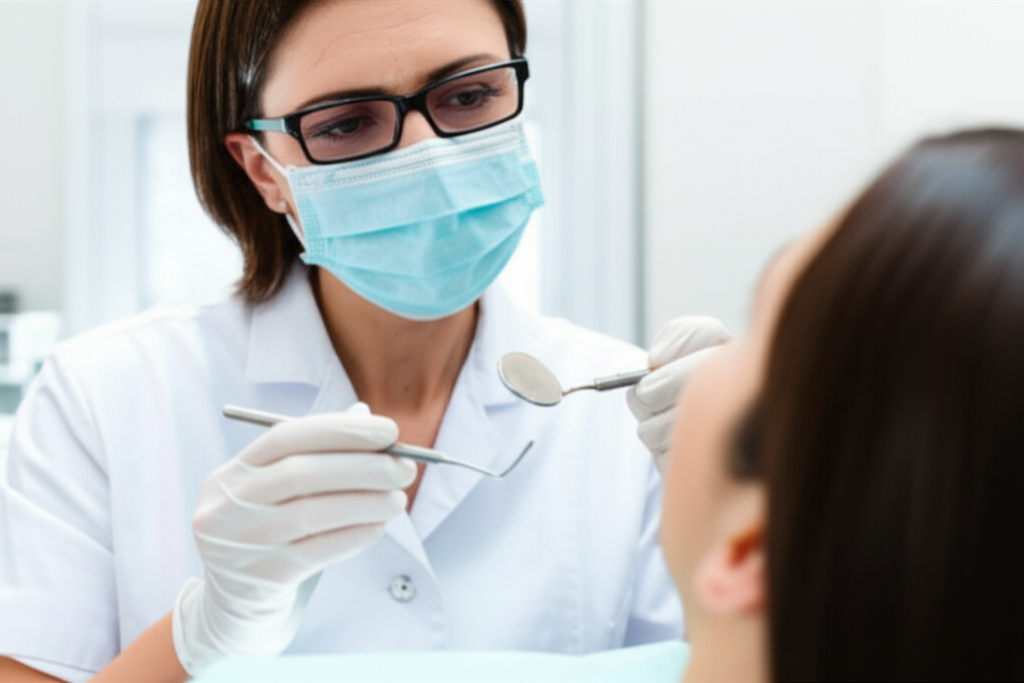
Can Your Dentist Tell If You Smoke? The Obvious Signs and Why It Matters for Your Teeth
If you smoke or use tobacco, you might wonder if your dentist can tell. Here’s the simple answer: Yes, your dentist can almost always tell if you smoke—even if you don’t say anything. But don’t worry, this article isn’t here to judge you. Instead, I’ll explain the signs dentists look for, why it matters for your health, and what you should do next. By the end, you’ll see how being honest with your dentist can help your smile—and your whole body—stay healthy.
Table of Contents
What Signs Do Dentists Notice Right Away?
Tobacco Stains and Discoloration
Let’s start with the first things dentists see. Tobacco stains are super obvious in your mouth. Maybe you see your teeth are yellow, brown, or even black in some spots. Sometimes these stains show up on the back of your teeth, or on things like crowns or fillings.
Dentists like Dr. Joe Dental, who’s seen thousands of patients, say it’s really hard to hide these marks forever. Even whitening toothpaste can’t remove them all. [1]
Bad Breath That Doesn’t Go Away
Have you tried gum or mouthwash to cover up bad breath? Smokers know it’s tough to hide that strong smell. Smoking changes the bacteria in your mouth and leaves chemicals behind that don’t disappear with a quick rinse. Dentists call this “halitosis,” and they spot it fast.
Gum Changes
When I see a new patient, I look at their gums first. Gums in people who smoke can look red, swollen, or even start to pull away from the teeth. Oddly, gums might bleed less because there’s not as much blood flow, so you might be shocked to hear you have serious gum disease—even if you don’t see blood when you brush.
Here’s a quick list of signs:
| Signs | What It Looks Like | Why It Matters |
|---|---|---|
| Stains on Teeth | Yellow/brown spots | Shows tobacco/nicotine use |
| Bad Breath | Strong, lasting smell | Changes the mouth’s environment |
| Red/Swollen Gums | Puffy or shrinking gums | Early sign of gum trouble |
| Smoker’s Palate | White, rough roof of mouth | Linked to long-time smoking |
| Smoker’s Melanosis | Brown spots on gums | Mouth reacting to smoke |
| Leukoplakia | White, rough patches | Can be a sign of cancer |
How Does Smoking Really Affect Your Mouth?
A lot of people think that if their teeth don’t hurt, nothing’s wrong. But smoking changes your whole mouth—even parts you can’t see in the mirror.
Gum Disease and Bone Loss
Smoking makes it two or three times more likely to get serious gum disease (periodontitis). That means the bone and tissues holding your teeth can break down. Many smokers lose their teeth much earlier than people who don’t smoke.[2]
Why? Nicotine makes your blood vessels smaller, so your mouth doesn’t get enough oxygen and nutrients to heal and fight germs.
Slow Healing and More Cavities
Ever see a cut or sore in your mouth take a long time to get better after a dental visit? That’s another thing smoking does. Pulling teeth or getting dental implants can take much longer to heal, and the chance of things not working out goes up.
Smokers also get more plaque and tartar (the hard stuff that builds up on teeth), leading to more cavities and bigger spaces between teeth and gums.
Other Weird Changes
Sometimes smokers get spots, thicker patches, or even little red bumps on the roof of the mouth. These can be early signs of bigger health problems, so dentists watch them closely.
What Other Signs Do Dentists Look For?
Some signs aren’t as easy to see, but dentists spot them right away.
Dry Mouth
One sneaky thing smoking does is give you a dry mouth, called “xerostomia.” Less spit means germs can grow faster and your mouth can’t clean itself. This makes it easier for teeth to get holes, and for sores or infections like a mouth fungus to show up.
Tough or Stringy Gums
Smoker’s gums can look and feel different—tough or stringy and sometimes darker. They might not bleed, but underneath the surface, real problems can start.
Bone Loss on X-rays
Dentists look at X-rays and sometimes see shrinking jawbone, even if your teeth look fine. This bone loss is often tied to smoking.
Can Dentists Tell If You Vape or Use Other Tobacco?
Here’s the truth: Vaping and other tobacco types are also easy for dentists to spot, though the signs are a bit different.
Vaping or E-cigarettes
Vaping doesn’t always give heavy stains, but it can make your mouth dry and sore, and make your gums swollen. Some sweet vape flavors can cause even more cavities. Dentists check for redness, swelling, and unique spots on your tongue and gums.
Chewing Tobacco and Snus
If you use chew or “snus,” which is another type of smokeless tobacco, sores or white spots often show up where you keep the tobacco. This kind of tobacco greatly raises the risk of mouth cancers—about four times higher than if you don’t use it.[3]
What About Chewing Tobacco, Weed, or E-cigarettes?
Many people think if they switch to something like weed or e-cigarettes, they’ll dodge mouth problems. That’s not really true.
Cannabis
Weed smokers often get a dry mouth and puffy gums, too. This helps bad bacteria move in. Some get mouth fungus (white patches) or rough white spots called leukoplakia.
E-cigarettes
While e-cigarettes skip some of the bad stuff in regular smokes, you still get nicotine and strange chemicals. That means a higher chance for gum trouble, sores in your mouth, and even changes in how food tastes.
Why Should You Tell Your Dentist You Smoke?
Let’s be real: Most people don’t talk about smoking because they’re scared they’ll get in trouble. I see this a lot. But not telling your dentist can make things worse.
Problem
If your dentist doesn’t know you smoke, they might not see the first warning signs of bad problems like gum disease, mouth cancer, or slow healing after dental work.
Agitate
Picture this: You think your mouth is fine but a few months later you find out gum disease has started, or a weird spot is actually cancer. Not good—and much harder to fix then.
Solution
But here’s the bright side: When your dentist knows what’s up, they can watch for problems, give advice, and catch things early. Dentists aren’t there to scold—they want to help you keep your teeth forever.
What Happens If You Hide That You Smoke?
Hiding that you smoke doesn’t make the signs go away. It can actually cause even bigger problems.
- Dental work might not work as well—like implants or gum treatment—because you heal slowly.
- Bad things like mouth cancer or serious gum disease might not be found early, making them tougher to treat.
- You might get advice that doesn’t really fit you, which can mean more pain or losing teeth sooner.
Talking honestly with your dentist gets you better results and keeps your teeth and gums in better shape. Plus, dentists like Dr. Joe Dental are trained to help, not get mad.
How Does Smoking Change Dental Work?
Dental Implants and Crowns
Smoking makes dental implants less likely to work. Studies show that implants fail almost twice as much in smokers versus people who don’t smoke.[4] The bone doesn’t heal as well, and there’s more risk of infection.
Dental labs like a crown and bridge lab or implant dental laboratory will often check with your dentist to see if there are special risks—smoking is one of the big ones.
Extractions and Oral Surgery
If you have to get a tooth pulled or have mouth surgery (like wisdom teeth), smoking can double your healing time. What should take a week might take much longer, with a bigger chance of infection.
Dentures and Partials
If you wear dentures; smoking can make the fit change quicker, and mouth sores can pop up. If you want a strong, natural look, many dentists work with a removable denture lab that gets the needs of people who smoke.
What Are the Benefits of Quitting for Your Mouth?
The second you quit smoking, your mouth starts to get better. In a year, your chance for gum disease goes down. After five years, your risk for mouth cancer drops a lot. Gums get healthier, breath smells better, and your teeth stain less.[5]
If you just quit—or are thinking about it—tell your dentist. They can encourage you, share tips for keeping your mouth clean, and help you find ways to stop smoking.
If you need new teeth, implants, or a smile fix, you have a much better chance of success once you stop smoking.
Frequently Asked Questions
How long until my dentist can’t tell I smoke?
It depends. Some stains go away a few months after quitting, but gum or bone changes can last longer.
If I only smoke sometimes, can my dentist still tell?
Yes, even people who smoke rarely still get many of the same signs—maybe lighter, but still clear to a dentist.
Will my dentist judge me if I admit to smoking?
No. Dentists care about your health. Being honest helps them do what’s best for you.
Can my dentist help me quit?
Yes. They can give you mouth care tips and connect you to quit-smoking programs or medicine.
Does vaping count as smoking?
Most dentists say yes, since nicotine and other chemicals still hurt your mouth.
Key Points to Remember
- Dentists can almost always tell if you smoke because they notice stains, gum changes, and more.
- Smoking hurts your gums, teeth, and jawbone, leading to more dental problems and harder healing.
- Hiding your habit doesn’t help—being honest is best for healthy teeth and body.
- Quitting smoking helps fast: fewer problems, quicker healing, and lower chance of mouth cancer.
- Dentists won’t judge you. They want to help you get and keep a healthy smile.
If you have questions about dental work or new teeth after quitting—like picking the right dental ceramics lab or finding a good china dental lab with great technicians—ask your dentist. Modern dental labs work with your dental team to make strong, natural smiles for everyone, even for people who used to smoke.
References:
Remember: Your dentist is on your side. Open, honest chats lead to cleaner, stronger teeth. Don’t be afraid—get the dental care you deserve.

